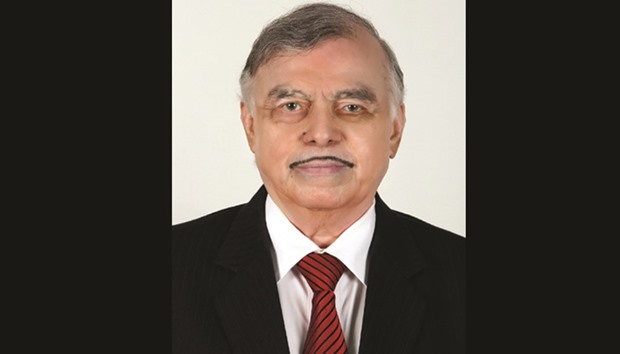Kerala Governor P Sathasivam said yesterday he was sad at the standoff between journalists and lawyers in the state.
“It is very sad that the most literate state faces an unending conflict between lawyers and media-persons, both of whom constitute two pillars of democracy,” the governor said inaugurating the Kerala chapter of Indian Association of Lawyers in Kollam.
“The lawyer is the sworn officer of the court unto society’s welfare; the journalist is the unsworn officer of society unto the common good. Both law and journalism, in their last and final analysis, are professions of public service. There is no other adequate reason for their existence in a social state.”
Journalists are not allowed to the courts after a clash with lawyers on the High Court premises seven months back.
The media room at the HC remain closed, and there were instances of lawyers chasing away reporters.
The governor has since been advising the authorities to end the impasse at the earliest but to no avail.
The half-hearted efforts by the government, holding a meeting of stakeholders at his instance as demanded by the opposition, also did not succeed.
“I would say that reasonable restrictions in the courts can be understood, but a total non-co-operation and antagonism are not in the spirit of the democratic values that we as lawyers, uphold,” said the governor, a former chief justice of the Supreme Court of India.
“It is surprising that lawyers are unable to take the lead in settling this issue. Let us not forget that society is watching us. As supporters and protectors of democracy, the legal fraternity should come forward to resolve the issue, which I understand, has worsened to the level of lawyers refusing to argue cases pertaining to media companies.”
The judiciary and journalism are, he said, society’s two most important watchdogs of democracy and that there are many similarities between lawyers and journalists.
Though they moved the SC against the ban, the apex court left it to the HC which is yet to ensure freedom of journalists to cover its proceedings with lawyers physically preventing them. In October, two women television journalists were assaulted in a courtroom here but, the police failed to frame charges against them.
“We have kept all channels open to ensure a free flow of information, but no concrete action is coming from authorities,” said BS Prasannan, the district secretary of the Kerala Union of Working Journalists (KUWJ). “We had approached all available forums to end the ban, but the courts remain shut on us. It happens in Kerala when advanced democracies televise court proceedings live.”
The women journalists say they were publicly abused with the judge remaining a silent spectator. But the lawyers were booked on minor charges and were released on bail immediately. They also filed a counter complaint against them.
They journalists want steps to ‘facilitate a democratic, and dignified working atmosphere’ at the HC and subordinate courts by giving them access to the courts and for opening the media rooms.
They say they had earlier submitted representations to the governor, chief minister, chief justice, advocate general and the HC registrar but no effective step had so far been taken to reinstate reporting facilities on courts.
The closure was ‘arbitrary and unjustified’, and the cold relationship between the lawyers and journalists cannot be a reason for permanently closing the media rooms, they argued.
When the HC took up their appeal recently, its registrar informed the court that a section of lawyers was still opposed to allowing reporters in, despite several lawyers, including Kaleeswaram Raj and Dr Sebastian Paul, demanding an end to the media ban.

Sathasivam ... pained
